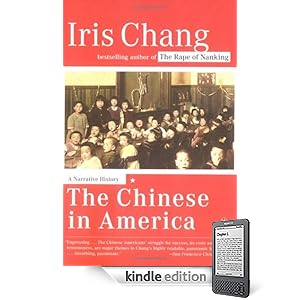There has been a lot of drama in East Asia in the past few months, shifting international attention from environmental and economic concerns to fears of deepening tensions between rivals and military confrontation.
First North Korea torpedoes a South Korean ship off its coast and kills forty-something sailors. This incident is one of the worst military provocations on the Korean peninsula since the Korean War. Obviously, this significantly sours the North-South relationship, and South Korea threatened to stop trade with its neighbor. China was put into a quandary. After all, it traditionally has been one of North Korea's only allies. However, with the U.S.'s and the U.N's strong support of South Korea, China could not easily defend the rogue nation. Therefore, it remained "on the fence," trying to ameliorate the situation with no success.
The situation took an almost childish turn in which South Korea stating that it would re-designate North Korea as its "archenemy." China, on the other hand, faced mounting pressure to make Kim Jung Il face responsibility for the events. Trying to be objective, the Prime Minister of China offered his condolences to South Korea while cautiously not directly accusing any actor for the sinking of the ship.
Meanwhile, North Korea fervently denied any involvement with the sinking and threatened military action if it received a U.N. condemnation. The North Korean ambassador to the U.S. stated, "our people and army will smash our aggressors." I don't underestimate North Korea's ability to take rash actions, but it's not like they have never faced U.N. pressures before.
The U.S. and South Korea began naval drills on the coast of the Korean peninsula. These drills involved over 8,000 personnel and 200 aircraft. Then the two sides go back and forth, with North Korea threatening retaliatory action. It seized a South Korean ship and fired rounds into a disputed sea border. It seemed like direct military confrontation was inevitable.
Then, in a sudden turn of events, North Korea freed the detained ship and South Korea suggested a reunification of families that were separated by the Korean War. It also agreed to send flood relief aid to the North. North Korea then proposed military talks to settle some border disagreements. It seems like tensions are cooling. However, as this one incident wraps up, another one begins.
China and Japan, two other rivals in the region, have begun a spat over the detention of a Chinese captain who had sailed into a disputed area between the two countries. The island in question is called Senkaku by the Japanese and Diaoyu by the Chinese. China is arguing that Japanese officials do not have jurisdiction to prosecute the man. Now China is refusing to talk to Japan during the U.N. meeting. I don't think there has been conflict on this level between the two countries since the controversy a few years ago over the publication of Japanese textbooks that did not fully explain Japan's part in the atrocities of World War II.
Wow, so there are still a lot of problems in the region. China and Korea have deep-rooted anger towards Japan for historical reasons. The two Koreas struggle to find a way to coexist. The U.S. backs South Korea and Japan militarily. China tries to balance its alliances but has to keep supporting North Korea. North Korea, meanwhile, is trying to sort out the succession of Kim Jong Il's son. The world waits with bated breath to see the conclusion of this power transition. Each country tries to become the regional hegemon. In a way, it kind of sounds like some kind of soap opera, doesn't it?
It's also really difficult because of the range of political and economic systems in the region. South Korea and Japan are both capitalist and democratic. North Korea is an enclosed communist nation in which a dictator rules with an iron fist. China economically, is teetering between its past socialist roots and its capitalist future, while remaining essentially a totalitarian state.
Any predictions as to what will happen? I really don't see any military conflict happening in the near future, thank goodness. I also don't see reunification happening between the Koreas for at least a decade. The succession in North Korea will probably occur smoothly and I doubt the new leader will make any visible changes to foreign policy. Japan and China will get over this incident because they are big trading partners and sometimes economics trumps politics. So, in my opinion the region will remain in this standstill for now.
